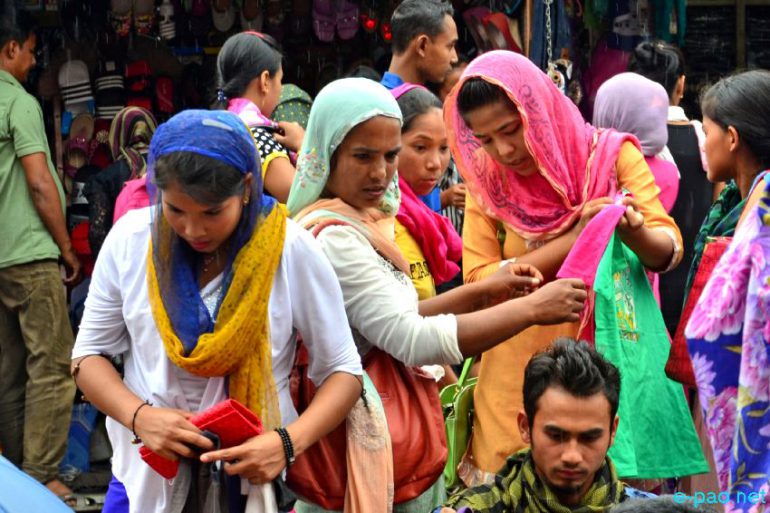
On the 3rd of May 1993, nearly 140 Muslims were massacred in Manipur by the dominant Meitei community. Muslim houses were burnt, their properties destroyed. As has been seen in other such cases where Muslims have been on the receiving end, the police were actively complicit with the dominant community in this massacre. In the ‘conscience collective’ of this nation, this gruesome incident has been relegated to the margins of historical memory. There are different ‘reasons’ given for this massacre, but what is not disputed is the fact Muslims have yet to get even an iota of justice. The state, dominated by Meiteis, has seen to it that most who perpetrated this violence got away with it. At times, state governments have announced compensation for victims, but the amount has been shockingly so meagre that it seems that the purpose of awarding such compensation was to mock Muslims rather than give any relief to them. A commission of enquiry was set up to probe the massacre, but the recommendations of Justice Sen largely remained on the shelves. At some places, the commission report appeared to blame Muslims for bringing this massacre upon themselves.
Locally called as Pangals, these Muslims are indigenous to Manipur. They settled in Manipur much before the Meiteis became Hindus and therefore Islam has a much older presence here as compared to Hinduism. And yet, over the years, they have been stereotyped by the larger community as thieves and drug peddlers. This prejudice is one of the reasons why Muslims have been at the receiving end of such targeted violence in Manipur. A certain hatred towards the Muslim community has become normal within the majority population. Muslim men were attacked in 2016 for participating in a cultural festival. In the same year, three Muslim men were accused of stealing vehicles and two of them were lynched. And in 2018, a young Muslim entrepreneur was similarly lynched after being accused of theft. The gruesome incident was filmed and circulated which showed the young man being denied water during his dying moments and uniformed men poking his body with bayonets to make sure that the person was dead. Muslims are yet to find closure with regard to any of these killings.
Muslims in Manipur constitute around 8.5% of the population. However, in terms of representation, they are hardly in positions of power despite some form of affirmative action in place. Largely relegated to the lower rungs of the government sector, they have been demanding proportional representation to no avail. As if this was not enough, the state has tried to divest them from their land in the name of development projects. Muslim voices, like student activist Chingiz Khan, who have questioned the government, have been jailed or threatened.
Part of the problem lies with the nature of the Meitei nationalism itself. In contest with dominant Hindu nationalism, it has at times ended up borrowing the rhetoric of Hindu nationalism itself. A very active reclamation of their pre-Hindu past has led to a certain revival of their tradition and culture, including their language and religion. However, certain strands of this nationalism seeks to actively exclude others. The very idea of Meitei-Meiteilon-Meitrabak (Meitei-Meitei Language-Meitie Land) is a language of exclusion, often indulged in by right wing nationalist forces. An unhealthy obsession with the ‘exploding’ population of Muslims (despite the statistics showing that it is the Christian population which has increased manifold), the threat that Muslims and others are taking away their jobs, the often open call for increasing the Meitei population by producing more children is nothing but pure imitation of the techniquesof the supposed ‘enemy’. It is not a surprise therefore that not just Muslims but even tribal communities in Manipur are deeply suspicious of this brand of Meitei nationalism.It is this very mimicry of Hindu nationalism which was partly responsible for Muslim massacre of 1993.
Meitei nationalists generally have been at the forefront of anti-AFSPA agitation. Unfortunately, we haven’t seen them mobilizing and demanding justice for Muslims killed in 1993 massacre. There might have been a few examples here and there but certainly there hasn’t been any sustained effort on their part to understand their community’s complicity in the worst anti-Muslim killings to happen in their state. The very fact that this issue was taken up by some Muslim organizations is perhaps a telling commentary on the exclusivity of Meitei platforms. One assumes that if Meitei nationalism was inclusive then Muslims would not have to create their separate platforms. Meitei nationalists have traversed the world talking about human rights violations in their state. We need to ask whether this talk of protection of human rights and upholding human dignity applies specifically to Meiteis only. What explains the relative silence of these activists over the 1993 anti-Muslim killings? Is it that the community which presents itself as a victim to the outside world, is adamant to continue as oppressors within their own state? In recent years, Manipuri Muslims have taken earnestly to higher education and have started forging broader solidarities with like-minded groups. But it is too early to say whether this will work to stem the tide of anti-Muslim bigotry. Being in a minority, they can only do so much. Ultimately, it devolves on the dominant community to question their own prejudices in order to forge a truly inclusive politics.
Courtesy: https://www.karvaanindia.com/